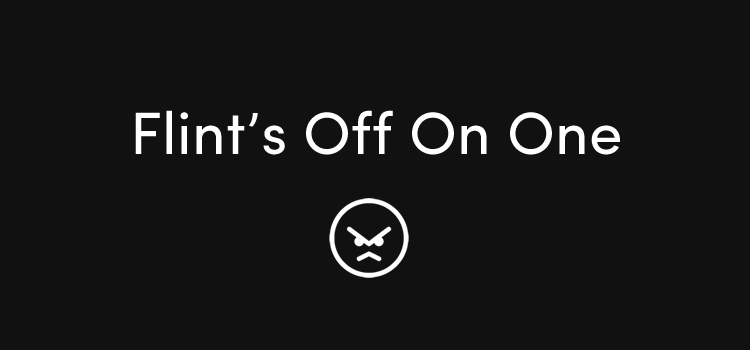Flickering black and white images. Charlie Buchan’s Football Weekly. Pathé newsreels in the cinema. Pubs crammed full of smoke, tension and crackling commentary. Wireless, when the word had nothing to do with internet. Dashing to the newstand on the street corner to catch the evening editions. In later years, rushing back to the car to hear James Alexander Gordon’s eminently authoritative tones. Tapping in the Ceefax number for the latest tables and scorers. Blindly avoiding all contact with the outside world until Match of the Day.
The Good Old Days© of receiving information were wonderfully innocent weren’t they? I don’t know a single octogenarian who doesn’t prefer how football used to be absorbed. The legendary names of Gianni Briera and Brian Glanville were as talented as the finest poets and playwrights of their age. I bet there are a fair few of younger generations who wish they could escape to that world once in a while; I know I do.
This is not going to be a rant about how the sport was better back then, but rather how it is reported. Now as a member of the journalism community, I may well be shooting myself in the foot here, but hear me out. Anyone following the midweek Premier League action couldn’t have failed to notice Pep Guardiola’s apparently bizarre exchange with Nathan Redmond. Within a flash, The Sun had contacted a lip-reading ‘expert’ who assured readers Guardiola had screamed the word “wanker” at the Southampton forward, only for the player himself to correct their complete fabrication as miles from the truth.
What made the utter shitrag even more reprehensible was that in their article they published Redmond’s and Guardiola’s denials of cursive language, but still lead with the word of an unnamed expert instead of the word of the player and manager themselves. The Spaniard has previous for approaching opposition players on the pitch afterwards and analysing their performance there and then. Not that this would bother the journalist or editor responsible for publishing the piece, of course.
Bournemouth midfielder Harry Arter’s wife gave birth to their stillborn child two years ago but fell pregnant last autumn. After their subsequent match against City, Guardiola made a beeline for the Irishman to wish him all the best, and offer his compliments as a player. Obviously it wasn’t aggressive like Guardiola’s admonishment of Redmond’s apparent dip in performance compared to their previous meeting. The root of the exchange, however, was in the same passion for professional standards.
The Manchester Evening News waded into the concocted furore by lambasting Guardiola’s “blast”. If it had been Mourinho, they argued, the FA’s judgement would have been swift and exacting. It’s hard to know which is worse; The MEN rushing to judge the appearance of the exchange and crying foul, or The Sun for acknowledging the truth but brazenly trying to convince its readers of an alternative. Are the latter’s readers really that bone-headed that they can’t understand the truth when it’s laid out on the page? Actually, they probably are.
It would not be original of me to reprimand social media for its complicity in the desperation for urgent headlines. It may be true, but we all know the arguments and we all sit on one side of the fence already. A fair portion of today’s print media shirks writing in a comprehensive and honest manner though, and it is a crying shame. Writing – and by extension reporting – is a craft, a form of art, and should be treated as such.
This is not to say that there is no reliable quality to be had. Pick a broadsheet and immerse yourself in the educated lines of Henry Winter or Sid Lowe and you know you’re enjoying a piece that has been sculpted, even if you don’t agree with the opinions.
Take the BBC’s guide to the World Cup stadiums published on their website. It was so full of basic grammatical and factual errors, one wonders how much pride was taken. Failure to bother checking which tier clubs are playing in, failure to grasp how “it’s” is not possessive, hyphenating “in-tact” – complete horseshit. A writer alone should never make those mistakes, while any editor worth his salt wouldn’t let them through.
Many people seem so lazy today that they’re happy to have their views formed for them. Whether we like this fact or not, it is an inescapable truth. This adds even more importance on journalists taking pride in curating their work before hitting the send button. If you enter the profession, you have a duty to inform accurately and responsibly. “But we have a deadline to meet!” they scream. Oh really? Guess what – so does everyone you talentless careless tosser! It’s part of not just your job, but pretty much every job in existence. If you can’t handle a deadline and quality, then step aside – there are plenty of McDonald’s toilets that need cleaning.
